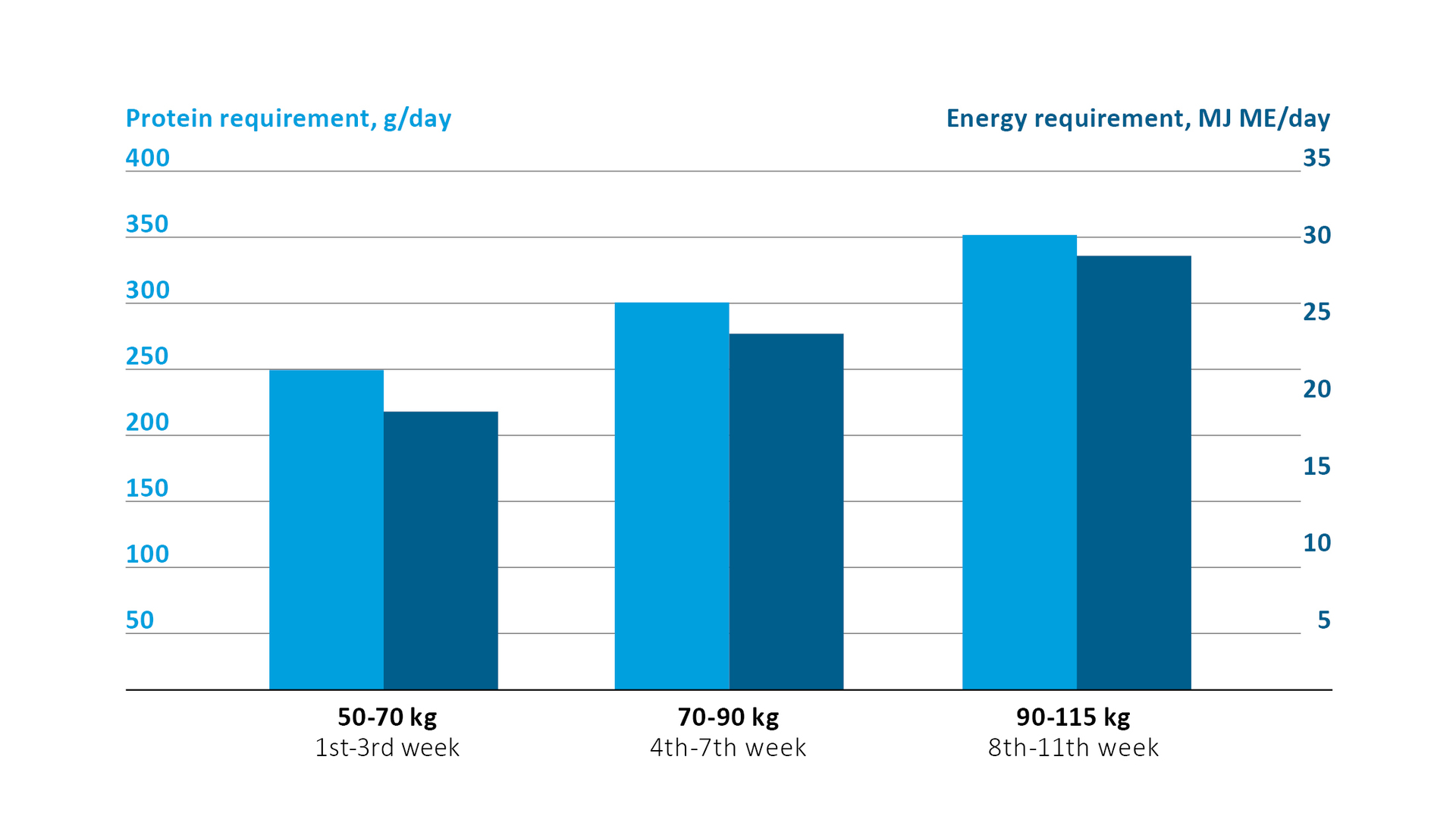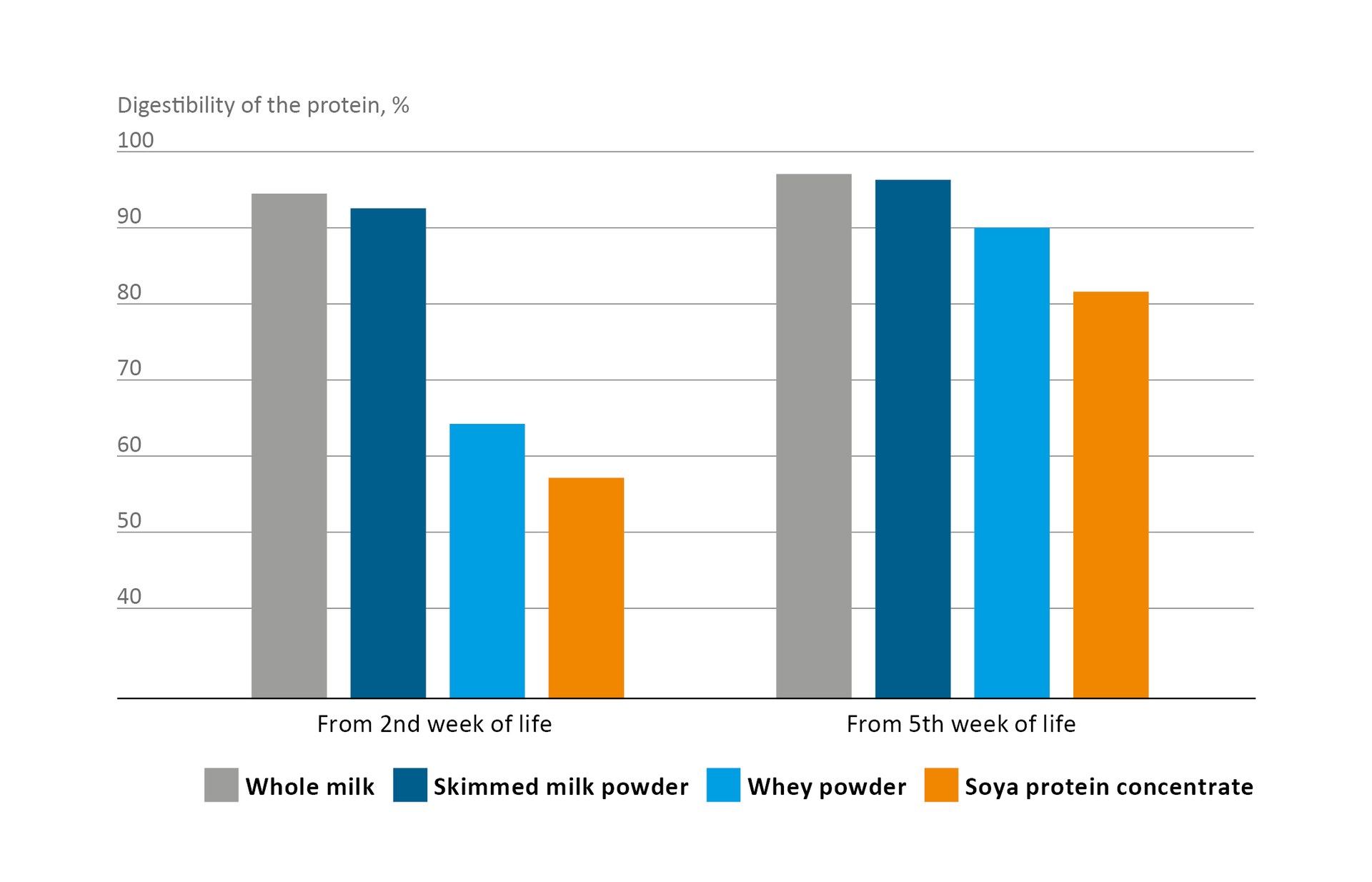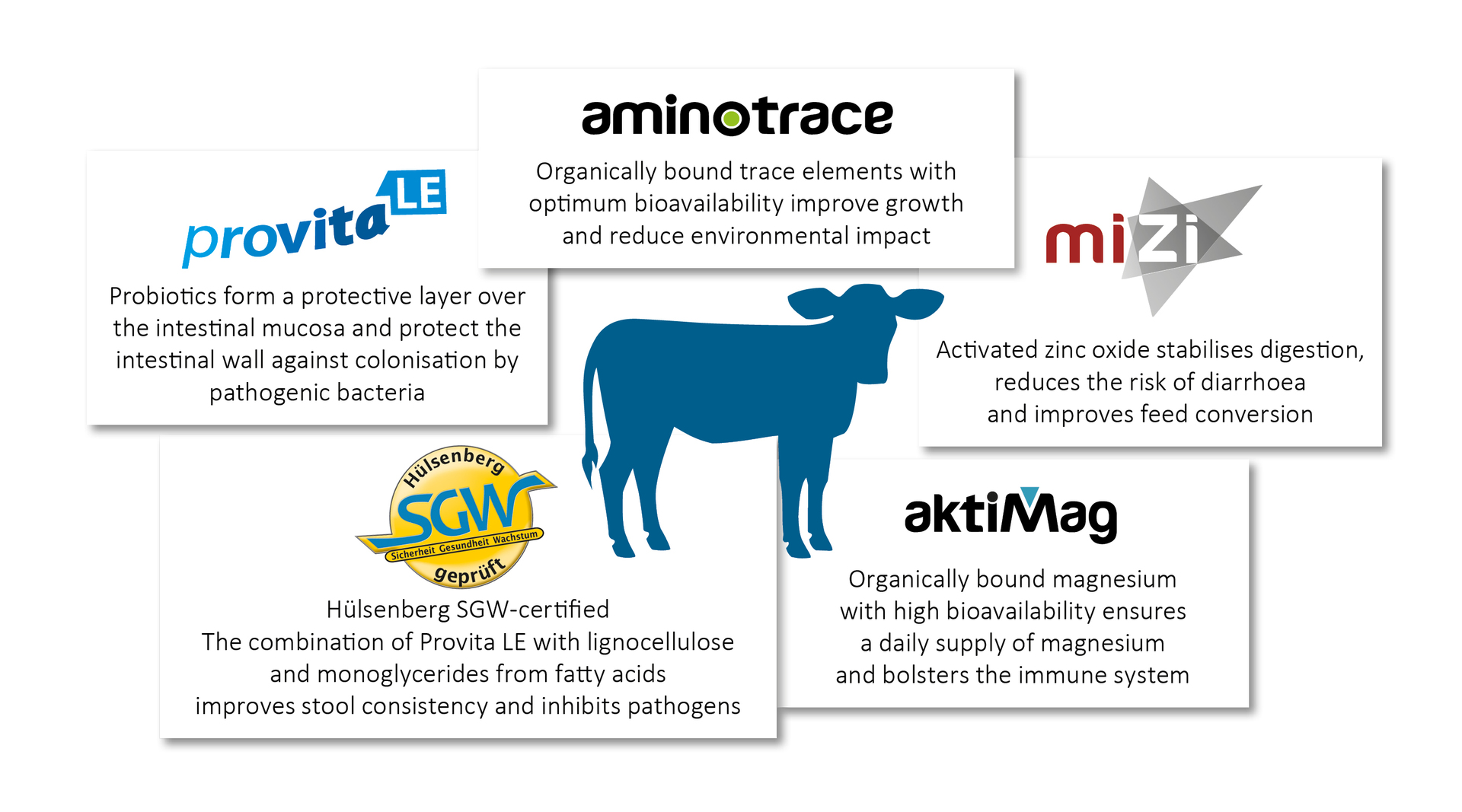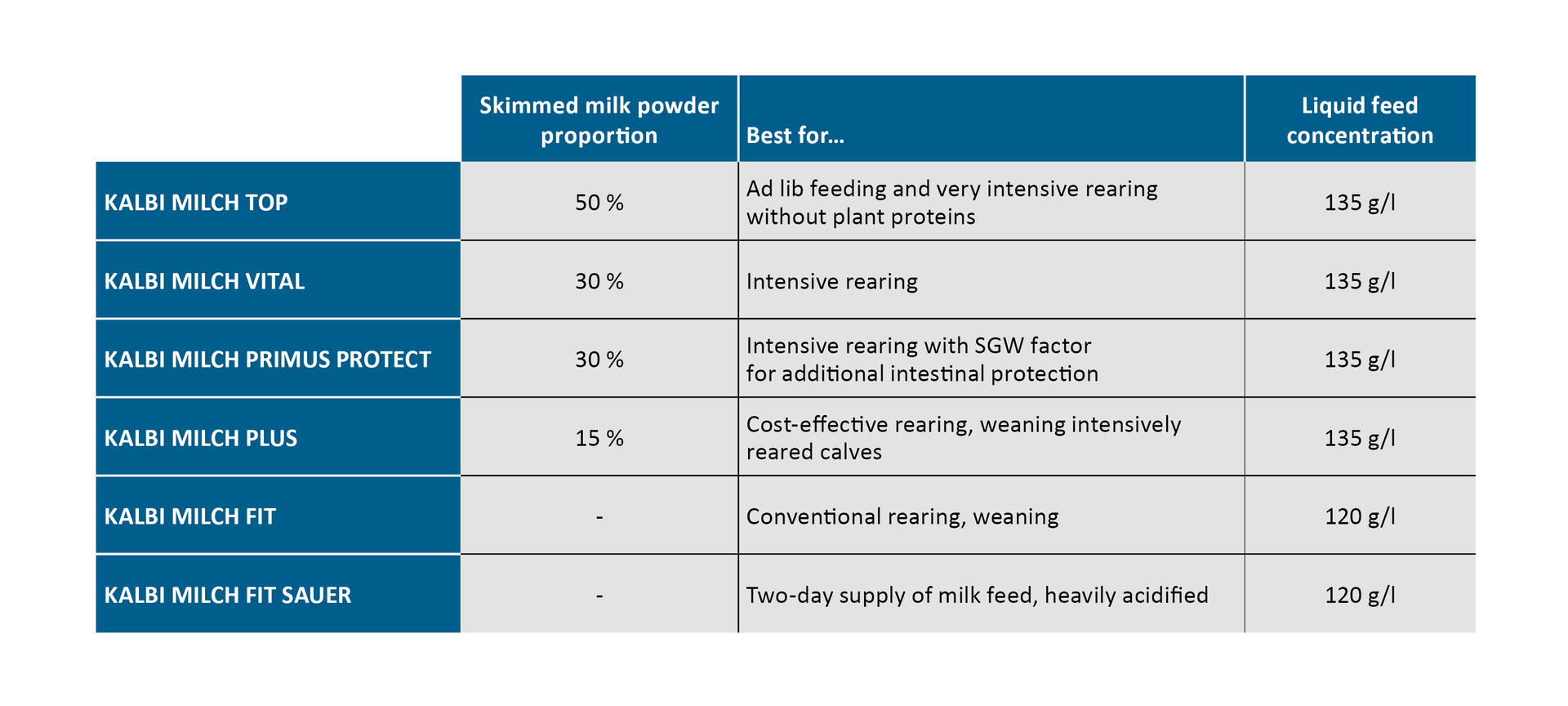
Success with the new KALBI MILCH range
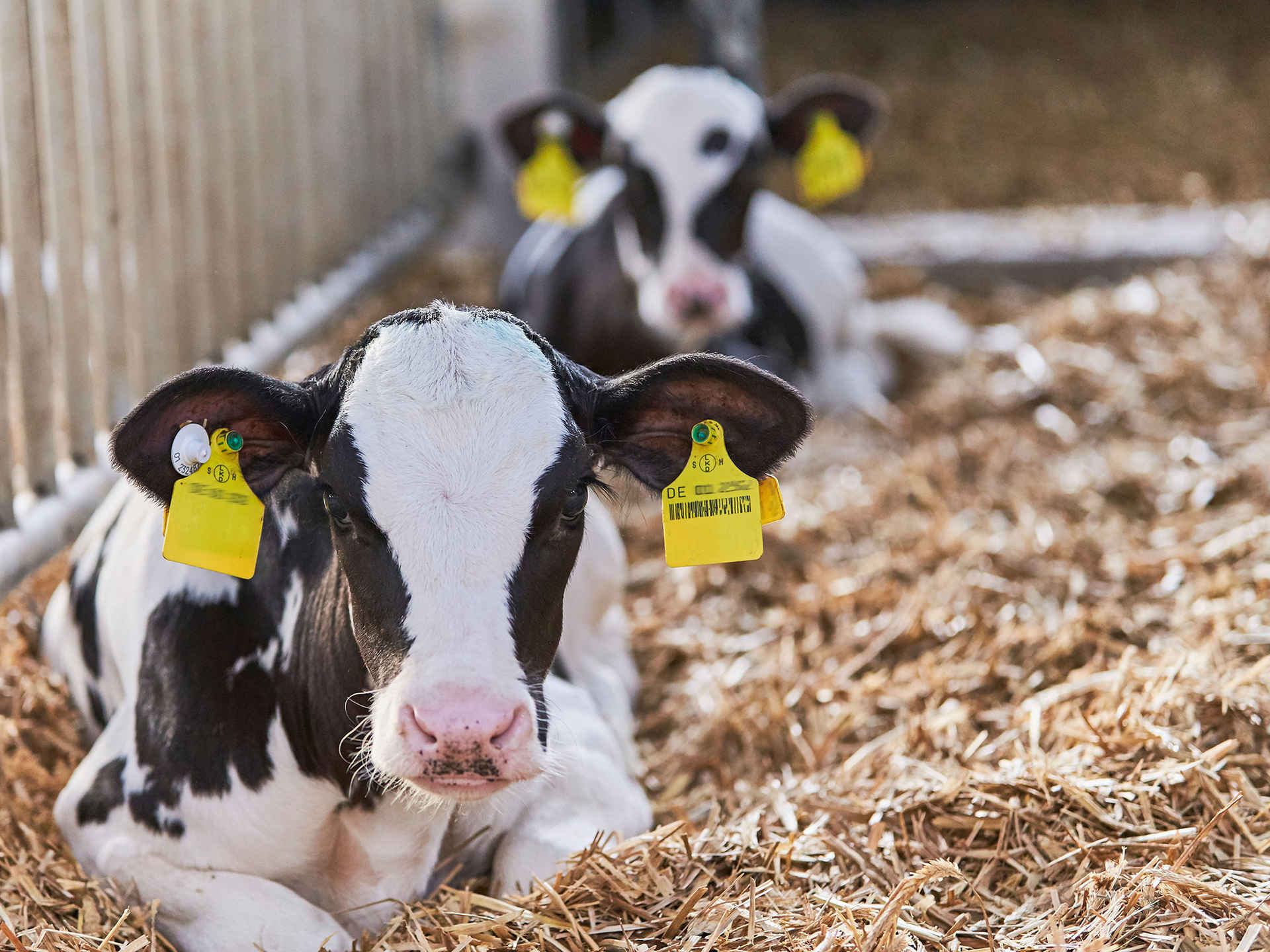
An adequate supply of energy and protein as well as vitamins and minerals is essential for successful calf rearing. The new KALBI MILCH range satisfies the highest demands in terms of feeding young calves, while at the same time being so flexible that it suits any feeding system.
Feeding calves based on their needs
Growth is largely contingent upon the provision of energy and protein. To harness the high genetic growth potential of calves, particularly in the first few weeks, the quality and quantity of their liquid feed is crucial. To achieve high daily weight gains, calves need around 19 MJ ME of energy and 240 g of raw protein per day during their first 3 weeks of life (see Figure 1). As such, this equates to a minimum daily whole milk quantity of 6.5 liters or around 1 kg of milk replacement from the very beginning of rearing. Energy and protein must be available at the appropriate ratio in order for calves to harness their full growth potential without becoming overweight or any surplus nutrients being excreted before being utilised.
In addition to the correct nutrient ratio, the digestibility of individual components during the liquid feeding phase is also important for successful rearing. Protein assumes a critical role here since it represents the basis of muscle formation. Skimmed milk powder has a similar level of protein digestibility to whole milk, even in young calves (see Figure 2). In contrast, when plant-based sources of protein are fed during the first few weeks of a calf’s life, there is a risk that undigested components will reach the large intestine, where they encourage the growth of pathogenic bacteria and can cause diarrhoea. Therefore, the younger the calf and the higher the daily drinking quantity, the lower the maximum proportion of plant proteins should be.
KALBI MILCH for ad lib liquid feeding
Numerous studies show that any quantities of nutrients fed beyond the calculated requirement as part of ad lib feeding during the first few weeks of life lead to higher daily weight gains, a more stable immune system and better performance during the first lactation. Milk replacers for ad lib liquid feeding should contain a minimum of 50% skimmed milk powder.
In total, the proportion of milk components, i.e. skimmed milk powder and whey powder combined, should be at least 70%. Additional quality characteristics are a raw ash content of no more than 7% and a raw fibre content of 0%. Plant-based proteins such as wheat protein should be excluded entirely for ad lib drinking. In addition to a high-quality milk replacer such as KALBI MILCH TOP, optimum dispenser hygiene and the right liquid feed management system are crucial.
KALBI MILCH for restricted liquid feeding
Even calves that are not fed ad lib require high levels of nutrients. During the main liquid feeding phase up to around the 6th week of life, a rule of thumb of at least 1 kg of milk replacer per day applies. It is recommendable to feed a milk replacer that contains skimmed milk such as KALBI MILCH TOP or KALBI MILCH VITAL. It is important during this phase that the milk replacer only contains a small amount of protein and that it contains over 65% milk components comprising skimmed milk and whey powder.
The weaning phase can begin after the 6th week. Depending on the feeding system, the same milk replacer can continue to be fed, or alternatively, one that contains less skimmed milk powder such as KALBI MILCH PLUS, or is based on whey powder, such as KALBI MILCH FIT.
Targeted use of active ingredients
All KALBI MILCH products provide an optimum supply of vitamins and trace elements adapted to the latest findings by ISF Schaumann Forschung. In addition, each product contains the proven SCHAUMANN active ingredients AMINOTRACE, MiZi, PROVITA LE and AKTIMAG (see Figure 3). Furthermore, KALBI MILCH PRIMUS PROTECT with 30% skimmed milk powder as well as SGW factor offers special protection against diarrhoea and supports the immune system.
